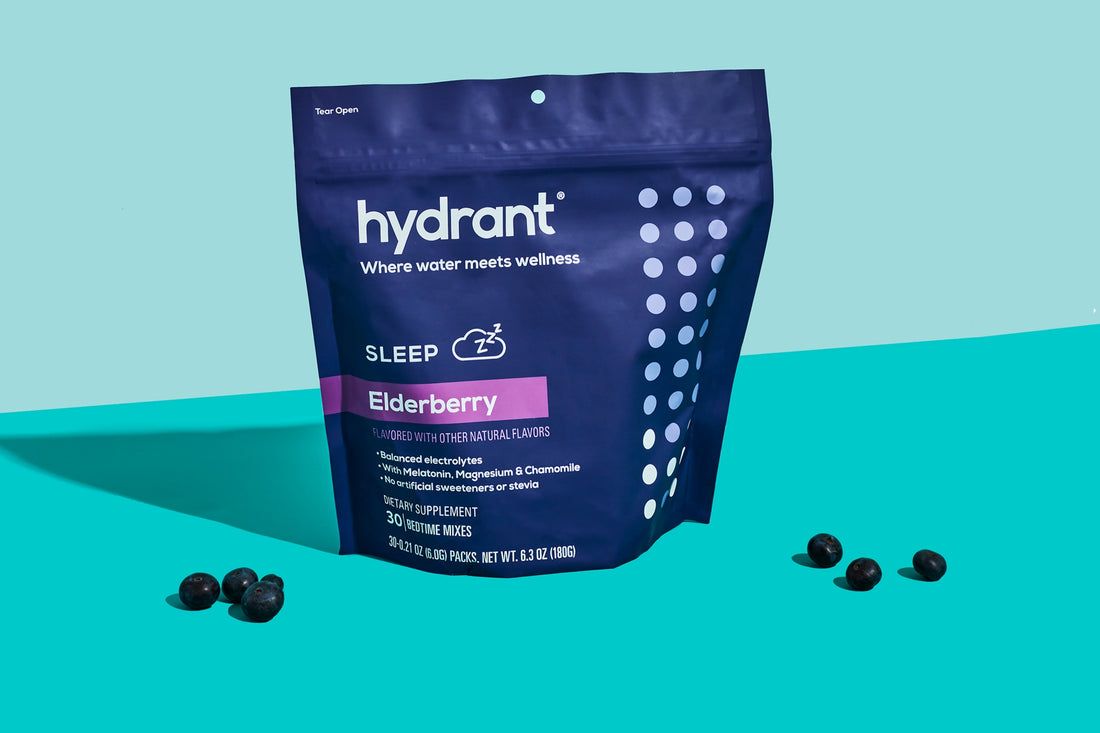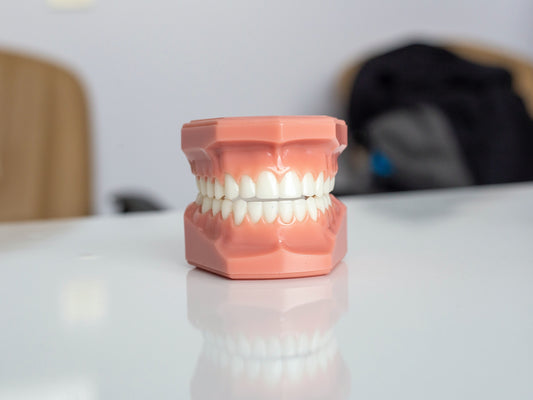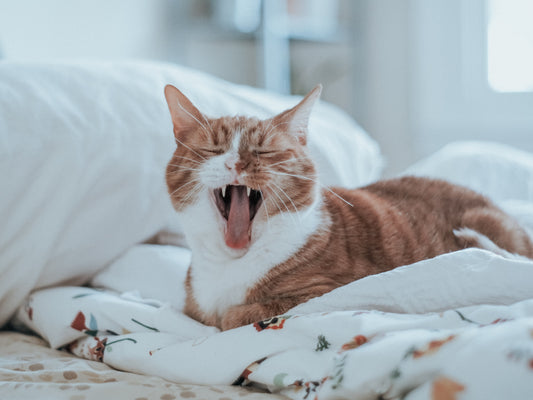Do you fall asleep as soon as your head hits the pillow? Is it more common for you to toss and turn for hours (or, at least, what feels like hours)? It’s hard to know if the amount of time it takes you to fall asleep (this is also known as “sleep latency”) is normal or not. It’s important to find out, though.
If you’ve been wondering, “How long does it take to fall asleep on average?” read on to learn. You’ll also get some tips that will help you improve your sleep latency.
How Long Does It Take the Average Person to Fall Asleep?
How long should it take to fall asleep? Everyone is a little different, of course. On average, though, healthy adults can generally fall asleep within 10-20 minutes of lying down for the night [1].
Is there anything wrong with taking longer than 20 minutes to fall asleep? Well, some research shows that taking too much longer (30 minutes and beyond) can have a negative impact on your sleep quality [2]. This may lead to you feeling less rested when you wake up in the morning.

What about falling asleep too soon? Is there such a thing? If it takes less than 5 minutes or so for you to fall asleep, that can be a sign of sleep deprivation.
Sleep deprivation is linked to a variety of health problems, including an increased risk of weight gain, Alzheimer’s disease, and diminished immune system function, so if you’re constantly falling asleep right when your head hits the pillow, that can also be a red flag [3].
Why Does Sleep Latency Matter?
Sleep latency plays an important role in establishing a solid foundation for a good night’s sleep. There are two main stages of sleep: REM (rapid eye movement) and NREM (non-rapid-eye movement) [4]. If you don’t have good sleep latency, you won’t be able to progress through these sleep stages and get high-quality, deep sleep.
Keep in mind, too, that sleep latency is associated with sleep efficiency [5]. When you spend the majority of the time that you’re in bed asleep, rather than staring at the ceiling or tossing and turning, you’re considered to be sleep efficient.
Factors That Affect Sleep Latency
If you’re not happy with your average time to fall asleep, it first helps to understand the factors that can influence sleep latency. Here are some of the most noteworthy ones to consider:
Daytime Naps
If you take a nap too late in the day, you might find that you have a harder time falling asleep at night. In general, sleep experts recommend avoiding naps after about 2pm [6].

If you’re going to take a nap before this time, try not to make it too long, either. Naps of about 10 minutes seem to offer the most benefits and don’t come with as much grogginess afterward (we all know that feeling of waking up from a nap and wondering how you’re going to get anything else done for the rest of the day).
Early Bedtime
Going to bed too early will affect your sleep latency, too.
If you force yourself to go to bed before you’re actually tired, you’re likely not doing yourself any favors. You’ll probably just end up staring at the ceiling and counting thousands of sheep before you finally succumb to sleep.
Everyone’s ideal bedtime is different of course. In general, though, the National Sleep Foundation recommends going to bed sometime between 8 pm and midnight for a restful night’s sleep [7].
Bedtime Routine
Do you have a bedtime routine, or do you work (or read or play video games) right up until your eyes start to close? If the latter is true, you might be sabotaging your sleep latency.
The absence of a bedtime routine makes it harder to send a signal to your brain that it’s nighttime. The same is true if you’re engaging in activities before bed (such as exposing yourself to blue light from the TV) that keep you feeling alert.
Jet Lag
Sometimes, poor sleep latency can’t be avoided. If you’ve just returned from a visit to a different time zone, there’s a good chance you’re going to experience jet lag.
Jet lag throws off your circadian rhythm and can lead to serious sleep disruptions. It can also cause other issues, including headaches and mood swings [8].
Stress and Anxiety
Do you struggle to fall asleep at night because you’re feeling anxious or stressed out? Mental health challenges like these can impact your sleep latency, make it harder for you to get into a parasympathetic (or rest and digest) state, and lead to low-quality sleep [9].
Sleep Conditions
Finally, certain sleep conditions can impact sleep latency. The following are some of the most well-known sleep disorders that might make it hard for you to fall asleep within the ideal 10-20-minute time frame [10]:
- Heartburn
- Musculoskeletal disorders
- Kidney disease
- Thyroid disease
- Breathing issues (such as asthma)
- Epilepsy
- Headaches
- Parkinson’s disease
If you suspect that you have one (or perhaps more) of these conditions, it’s important to talk to your doctor. They can help you address it and put together an effective treatment plan.
Tips to Improve Sleep Latency
Do you want to improve your sleep latency and ensure the average time it takes to fall asleep for you lines up with what the experts recommend? If so, here are some tips that can help:
Improve Sleep Hygiene
The term “sleep hygiene” refers to the steps you take to get ready for bed and maximize your sleep environment.
When it comes to your bedtime routine, there are lots of ways that you can do to make it better and improve your sleep latency, including the following:
- Go to bed at the same time each night
- Start getting ready for bed at the same time each night
- Avoid blue light an hour or so before bed
- Take a warm shower or bath
- Avoid exercising too close to bedtime
All of these can help you feel more relaxed and ready to fall asleep.
Make Your Bedroom an Oasis
You can also make your bedroom more conducive to high-quality sleep and better sleep latency.

Research shows that a cool bedroom (between 60 and 67 degrees Fahrenheit) is ideal for getting to sleep quickly [11]. Make sure your room is dark, too. Hang up curtains to block out light from outside, and consider wearing a sleep mask as well.
If you can’t keep all types of noise out of your bedroom (if you live in a city for example), you might want to play relaxing music or sounds from a white noise machine, too.
Reduce Afternoon Caffeine Intake
Caffeine has a half-life of approximately 5 hours [12]. This means 5 hours after you last consumed it, you will still have half of the caffeine left in your system.
If you drink caffeine too close to bedtime, you may have a harder time feeling sleepy and will toss and turn more than you’d like. As a general rule, try to avoid caffeine within about 4-5 hours of your preferred bedtime.
Keep in mind, too, that some people are more sensitive to it than others. You might need to cut it off earlier to ensure you get plenty of rest.
Combat Jet Lag
Is jet lag the culprit for your poor sleep latency and efficiency? If so, here are some tips that can help you combat it [13]:
- Expose yourself to bright, natural light during the day
- Try a supplement like melatonin to help with sleeping
- If right for you, talk to your doctor about prescription sleep aids
Be extra-diligent about caffeine management, too. Use it during the day to help you stay awake, but don’t drink it too close to bedtime as you’re working to get your sleep schedule back on track.
Journal or Meditate Before Bed
If you struggle with anxiety or stress that keeps you awake at night, try writing in a journal or meditating for a few minutes before bed. Activities like these can help you manage your anxious thoughts, slow down your breathing, and get into a parasympathetic state, all of which can help you sleep more soundly.
Expose Yourself to Daytime Sunlight
Even if you’re not struggling with jet lag, daytime sunlight exposure is good for solidifying your circadian rhythm. This, in turn, will help you to feel more alert during the daytime and sleepier when nighttime rolls around [14].
Talk to a Sleep Specialist
Finally, if all else fails, talk to a sleep specialist. They can conduct sleep studies that help you better understand what’s going on in your body while you sleep. This, in turn, makes it easier for them to make recommendations tailored to your needs.
Improve Your Sleep Latency Today
If you’re not happy with your sleep latency, there are lots of ways that you can do to improve it. Keep the tips listed above in mind so you can start falling asleep faster (but not too fast) and waking up feeling rested and ready to tackle the day.
















